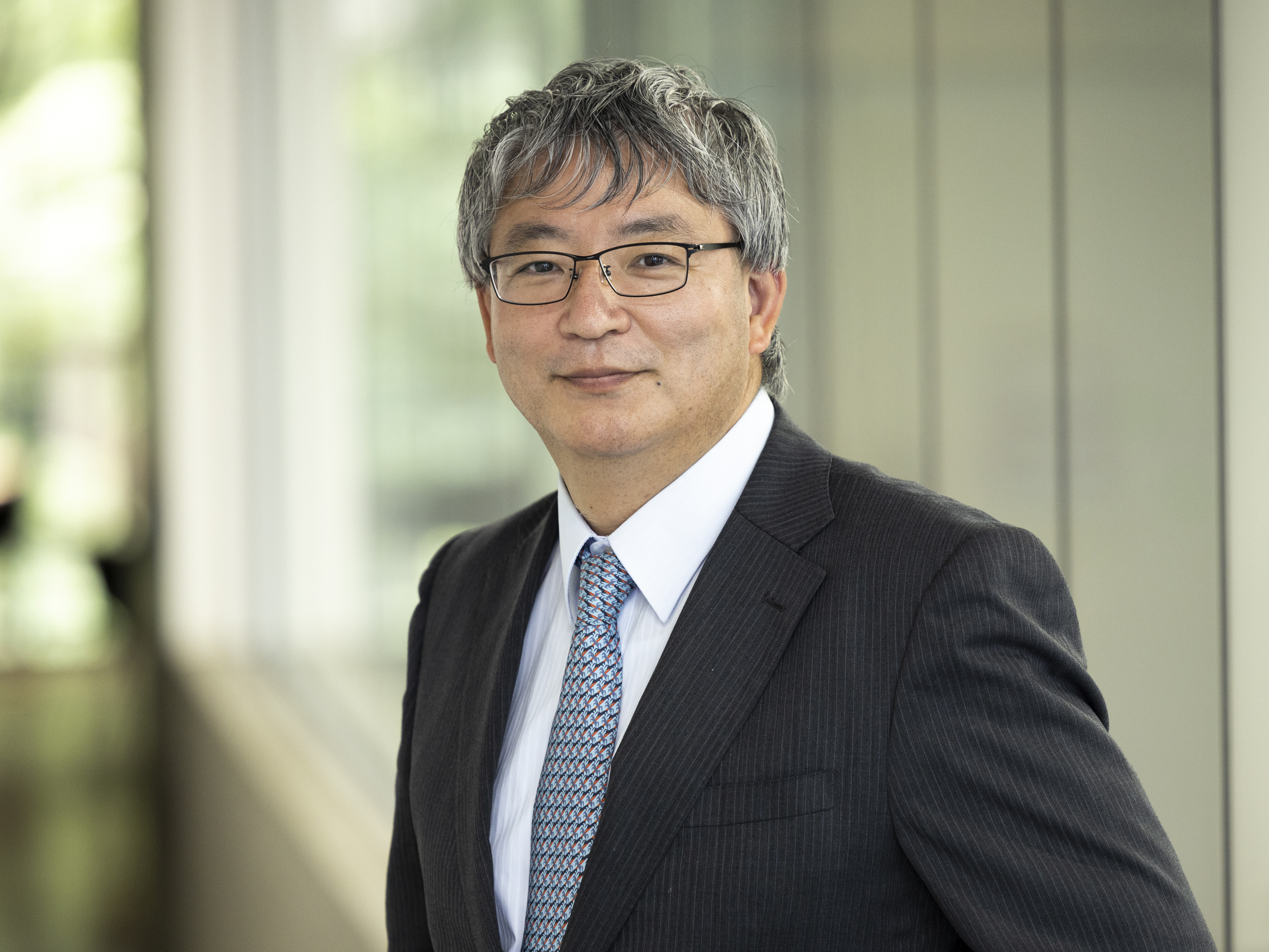With power electronics technology and motor drive technology as the basis, this research institute researches railway system technology that contributes to carbon neutrality and management efficiency.

Railways, the main support of modern and present-day society, have been developing since the 19th century. A key design factor of railways is the use of tracks. Its current advantages include clean electric drive thanks to overhead wires and pantographs and high-speed mass transportation capability. Additionally, since railways have low running resistance, they have recently attracted renewed attention as an energy-saving transport system. It is widely thought that railways will be increasingly important as a fundamental technology supporting a smart society and carbon neutrality.
However, with the emergence of the compact society due to pending population decline and personal mobility developments, such as autonomous cars, there is a need to reconsider the ideal railway; at present, railways require large-scale infrastructure and extensive personnel. There is also the issue of uniformity in transportation service. Further, with the background of global problems, such as global warming and fossil fuel exhaustion, railways, already regarded as relatively energy-efficient transportation systems, will have to have even greater energy efficiency. They are also being called upon to contribute to carbon neutrality.
Railways are characterized by several system components, including tracks, power supply equipment, signal systems, vehicles, and schedules, organically combined to provide safe, precise, and comfortable transportation. To solve the above-mentioned problems, it is important to view railways as an integrated system that considers the organic combination of elemental technologies, to grasp the current problems, and then solve them. Then, it is necessary to consider how to implement the results in a smart society.
Based on the above, to contribute to the solution of the above-mentioned problems, the institute conducts the following studies:
Keiichiro KONDO (Professor, Faculty of Science and Engineering)
HAYASHI, Yasuhiro Professor, Faculty of Science and Engineering, School of Advanced Science and Engineering
KONDO, Keiichiro Professor, Faculty of Science and Engineering, School of Advanced Science and Engineering
KUSAKA, Jin Professor, Faculty of Science and Engineering, Graduate School of Environment and Energy Engineering
MORIMOTO, Akinori Professor, Faculty of Science and Engineering, School of Creative Science and Engineering
MURATA, Noboru Professor, Faculty of Science and Engineering, School of Advanced Science and Engineering
WAKAO, Shinji Professor, Faculty of Science and Engineering, School of Advanced Science and Engineering
KOBAYASHI, Hiroyasu
SUZUKI, Takashi
Room #B1F-11A, Bldg #62W, 3-4-1, Okubo, Shinjuku-ku, Tokyo, 169-8555 JAPAN
【E-mail】 [email protected]
【Tel】 +81-3-5286-3372
【WEB】 Keiichiro KONDO Lab.